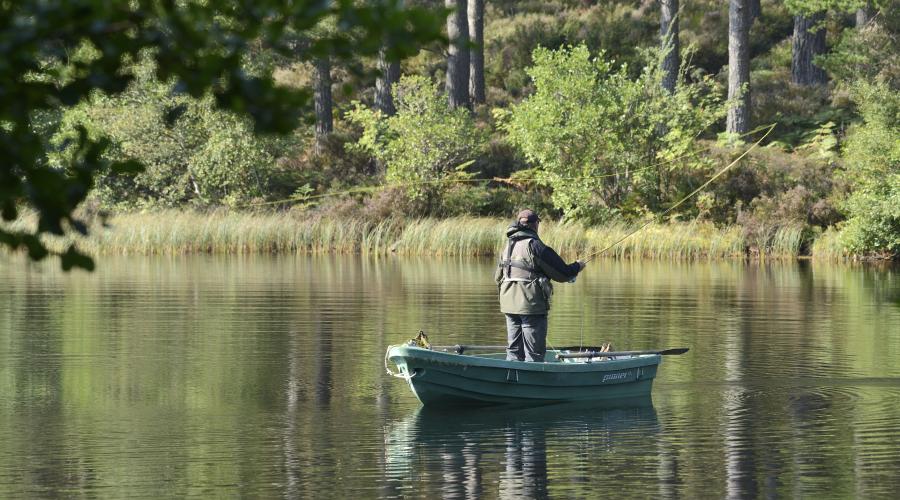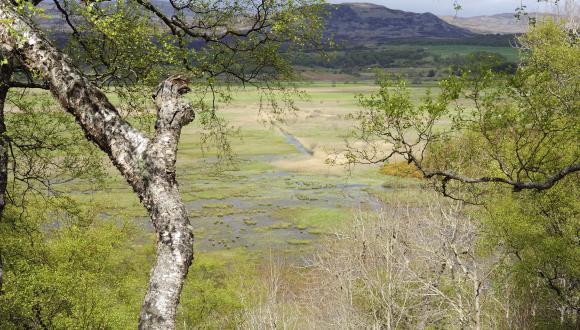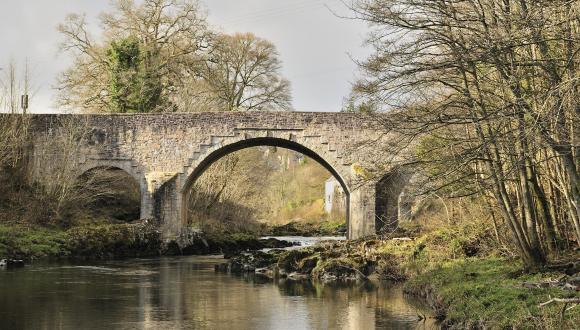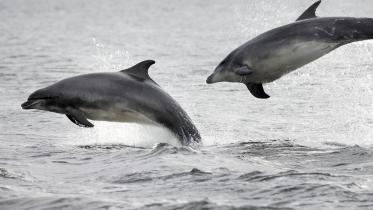
Managing freshwater
Good management of activities in our lochs, rivers and wetlands, or which affect their nature and landscapes, is vital.
Scotland’s lochs and rivers are generally of a high quality. The condition of freshwater has major implications for our biodiversity, health, enjoyment of the countryside and economy. Careful management will maintain this high quality or help to restore poorer quality freshwater to a good status.
Climate change is likely to increase the rate of flooding and we must find new ways to manage this risk. We can work to restore a catchment’s natural capacity to deal with floods – often called natural flood management. Wetlands, floodplains and woodlands can slow the flow of water and store water in the catchment. This reduces the risk of settlements being flooded.
Scotland supports a number of world-renowned freshwater fisheries such as angling for Atlantic salmon. These make a substantial contribution to local economies. NatureScot supports sustainable freshwater fisheries, which are managed with nature conservation as a chief concern.
We also encourage the appropriate scale, location and design of freshwater aquaculture developments to minimise negative impacts on freshwater environments, landscape and recreation.
People have been modifying Scotland’s rivers in many ways for centuries. River engineering, for whatever reason, may damage the long-term viability of freshwater species by changing the availability and quality of physical habitat. Legislation is now driving the restoration of engineered river systems to their previous, natural state.
Point source pollution and diffuse source pollution may both affect Scotland’s rivers, lochs and wetlands. Pollution can lead to loss of biodiversity, the silting of fish spawning grounds and ill health in people.
Catchment water resources enable all sorts of activities from hydropower generation to wild fisheries, and must be sustainably managed. River Basin Management Plans and catchment management initiatives are helping to ensure the sustainable use of Scotland’s water resources.
Invasive species are among the greatest threats to freshwater biodiversity, as they can badly affect native species and the ecosystem. We can all help to stop the spread of these non-native animals or plants that can cause damage to the environment, the economy, our health and the way we live.





